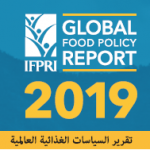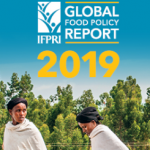[available in English and Arabic]
IFPRI’s flagship report reviews the major food policy developments and decisions of the past year, and looks ahead to 2019.
يستعرض التقرير الرئيسي للمعهد الدولي لبحوث السياسات الغذائية التطورات والقرارات الرئيسية المتعلقة بالسياسة الغذائية في العام الماضي، ويتطلع إلى عام 2019





